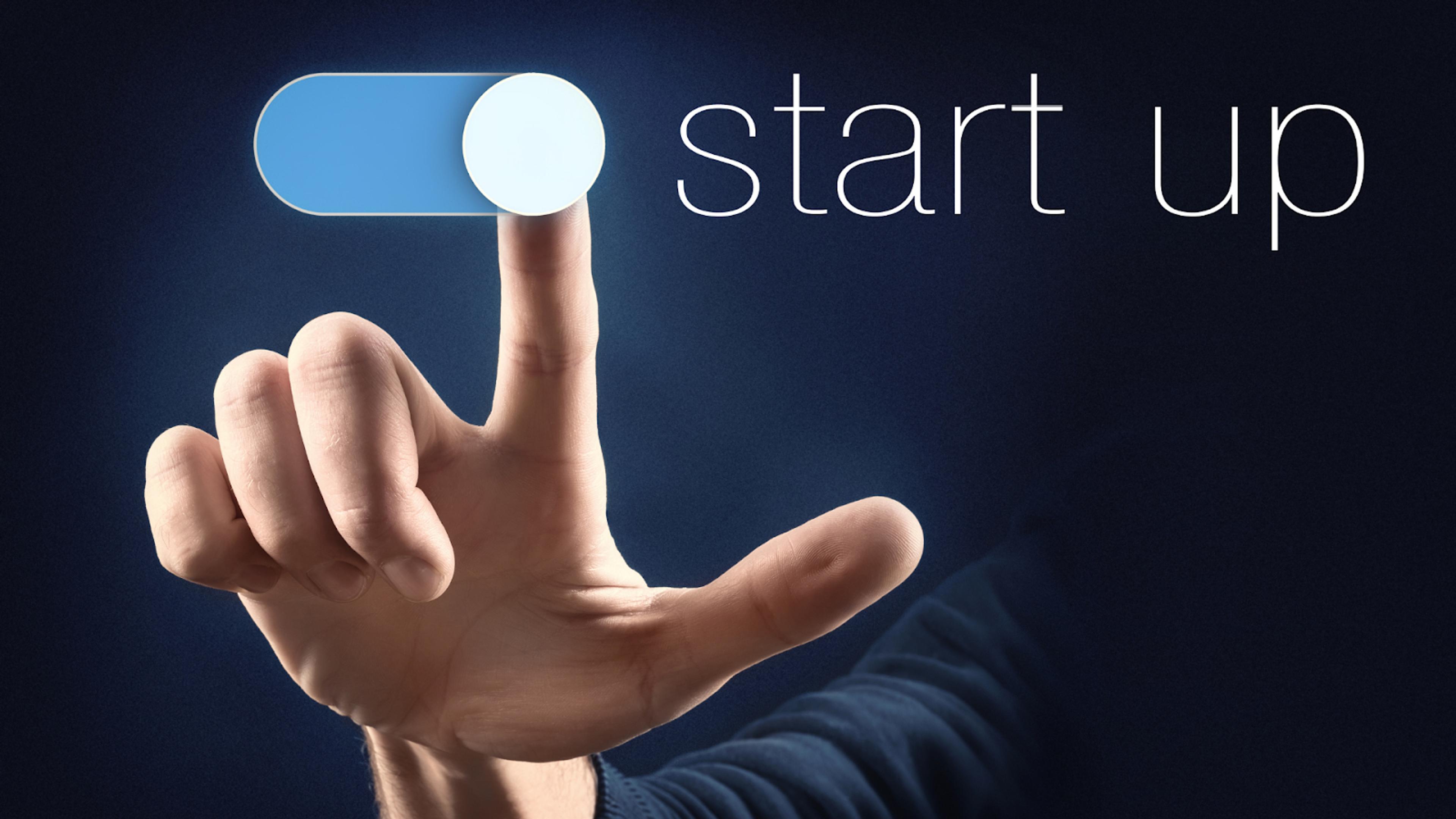YC Application Guide: Process, Questions, & Deadlines (2025)
Learn how to write a successful YC application for 2025 with key steps, metrics, deadlines, and expert insights for founders.
Posted November 7, 2025

Join a free event
Learn from top coaches and industry experts in live, interactive sessions you can join for free.
Table of Contents
Preparing your YC application is one of the most important steps in building your startup. Y Combinator (YC), founded in San Francisco, has helped over 4,000 companies, including Airbnb, Stripe, Dropbox, and DoorDash. The accelerator has one of the most selective processes in the world, with an estimated 1.5–2% acceptance rate from over 20,000 applicants per batch.
You’re about to start one of the most competitive yet rewarding application processes in the startup world. Preparing your YC application takes focus and clarity. What separates a successful YC application from the rest is your ability to show clear thinking, real progress, and a strong founding team.
This guide will walk you through the full application process, from the sample questions to practical advice for both technical and non-computer founders.
Read: Y Combinator: What it Is, How it Works, & How to Get In
What YC Looks for in Founders and Startups
YC invests in founders who can clearly explain their idea, make fast progress, and understand their users. The partners aren’t looking for polished presentations. They want proof you can create and adapt quickly. YC looks for:
- Clarity of thought. Can you describe your idea in one or two sentences?
- Domain expertise. Do you know your marketplace and competitors better than anyone?
- Commitment. Are you working full-time or planning to soon?
- Execution. Have you made measurable progress, like getting active users or a working demo?
- Adaptability. Can you improve based on feedback?
They are equally interested in non-computer founders and global teams. Many successful companies come from outside the U.S. or from non-technical backgrounds. If you lack technical skills, show strong domain expertise, real customer validation, or partnerships with developers.
Step-by-Step YC Application Process
| Step | Description | Key Tip | Average Timeline |
|---|---|---|---|
| 1. Accepting Applications | YC opens for Winter (Jan) and Summer (Jun) batches each year. | Apply early to avoid last-minute errors. | 2–3 months before the batch |
| 2. Main Application Form | The form includes 20–30 questions about your startup, team, and progress. | Keep answers short and factual. | 1–2 hours to complete |
| 3. Video Submission | 1-minute video introducing your founders and idea. | Be natural, skip editing and marketing speak. | Same week |
| 4. Interview Stage | 10-minute Q&A with YC partners. | Expect direct questions about users, revenue, and the solution. | Within 2–4 weeks |
| 5. Acceptance | If accepted, you’ll join YC’s program in San Francisco or remotely. | You’ll get funding and mentorship from YC’s extensive network. | Varies by batch |
Application Questions Breakdown
Describe What Your Company Does
When applying to YC, one of the most important questions you'll face is: “Describe what your company does in one or two sentences.” The goal here is to clearly communicate your business in a concise way. A strong answer shows you can explain your company to anyone, anywhere, in just a few seconds.
To answer effectively, keep it short and exceptionally clear. Here’s how to approach this question:
| Type | Example | Why It Works |
|---|---|---|
| Good | “Simple Habit helps busy people reduce stress in five minutes a day.” | Short, measurable outcome. |
| Bad | “We’re revolutionizing how humans interact with mindful digital experiences.” | Too vague, full of marketing speak. |
Explaining Your Idea
When YC asks about your idea, it’s not a pitch. They want to see your thought process.
How to write this section:
- Describe the problem and your solution clearly.
- Show how your idea makes sense now (timing or market shift).
- Include other ideas you’ve tested or considered applying with.
- Avoid the bad idea trap: don’t write theory; show action.
Example of evolution:
“We first tried automating restaurant orders, but realized the real issue was inventory control. That led us to build a simpler, smarter stock-tracking system.”
Showing Progress and Traction
YC wants proof of progress, not perfection. Even small wins can demonstrate momentum.
Metrics that matter:
| Stage | Typical Progress | Example |
|---|---|---|
| MVP (early idea) | Built a working demo, first 20 users. | Prototype with feedback calls. |
| Early Growth | 100–500 active users, small revenue or beta signups. | Launched on Product Hunt. |
| Scaling | 1,000+ active users or steady paying customers. | Early customer renewals. |
Note: YC often asks, “How many active users do you have?” Be honest. YC has funded startups with zero revenue but strong user progress or early traction.
Highlighting the Team and Background
YC values execution over credentials. Focus on what each founder contributes.
Include:
- Names and roles: Who leads software, business, or design?
- Domain expertise: Why do you understand this market better than others?
- Work status: Who’s working full-time?
- Equity ownership: Show a fair split and note any other stockholders.
Sample equity structure:
| Founder | Role | Ownership | Status |
|---|---|---|---|
| Alex | Technical Lead | 60% | Full Time |
| Jordan | Business Lead | 30% | Full Time |
| Advisors | Strategic | 10% | Part Time |
If you’re a non-computer founder, explain your leadership, customer insight, or industry experience. YC has funded many founders without coding backgrounds who showed a strong understanding of their users.
The “Successfully Hacked” Question
YC often asks for a time you successfully hacked something. This is a test of creativity and initiative. It doesn’t have to be software-related.
Example answers:
- “We created a landing page overnight to test pricing and got 300 signups.”
- “I built a prototype in 48 hours that got feedback from 200 beta testers.”
This shows you can create, test, and iterate quickly.
The Video Submission
Your video helps YC see the people behind the form. Keep it personal and authentic.
| Segment | Duration | What to Include | Tip |
|---|---|---|---|
| Intro | 10s | Team intro | Speak to the camera |
| Idea | 20s | What your company does | Skip filler words |
| Progress | 20s | Mention users, traction | Use one key metric |
| Closing | 10s | Why you care | Be genuine |
Avoid:
- Overproduction or background music.
- Reading a script.
- Using startup buzzwords.
Common YC Application Mistakes and How to Avoid Them
| Mistake | Why It Hurts | Better Approach |
|---|---|---|
| Long, vague answers | Reviewers lose interest. | Use clear examples. |
| Too much marketing speak | Feels fake or forced. | Use data and plain words. |
| Ignoring users | No proof of need. | Show even small user feedback. |
| Weak founding team | No clear ownership. | Highlight skills and roles. |
| Generic video | No personality. | Speak naturally. |
| No demo | No evidence of execution. | Add a simple prototype. |
| Writing like an investor pitch deck | Overfocuses on funding, not users. | Keep it problem-solution focused. |
YC Application Timeline and Deadlines
| Batch | Deadline (on-time) | Notes |
|---|---|---|
| Spring 2025 | Feb 11, 2025 @ 8 pm PT | Batch runs April–June. |
| Summer 2025 | May 13, 2025 | Applications open around this date. |
| Fall 2025 | Aug 4, 2025 @ 8 pm PT | Interviews and decisions follow shortly after. |
| Winter 2025 | Nov 12, 2024 @ 8 pm PT | Though the name is “Winter 2025”, batch runs Jan–Mar 2025. |
Important to note:
- Late applications are still considered, but decision timing is less certain. We Are Founders+1
- Make sure to check the official Apply page for the most current info. Y Combin
- Reapplying: Many successful YC founders were accepted after multiple attempts. Use feedback to refine your answers, metrics, and video before reapplying.
Read: YC Acceptance Rate: How Hard is It to Get In?
Beyond the Application: Preparing for Success
Build a Strong Demo or Prototype
You don’t need full functionality, but YC loves seeing something you’ve created that users can test. A working demo proves you can ship and learn from feedback.
Understand Your Market and Competitors
Be prepared to discuss competitors, how your solution stands out, and what advantage you have. YC isn’t looking for unique ideas. They want fast learners.
Funding and Equity Details
YC invests $500,000:
- $125,000 for 7% equity ownership.
- $375,000 on an uncapped SAFE with a Most Favored Nation clause.
Mention any other stockholders or investors to show transparency.
Post-Acceptance Phase
Once accepted, you’ll get weekly check-ins with partners, access to YC’s network, and prep for Demo Day, where startups pitch to top investors.
YC Readiness Litmus Test: Are You Ready to Apply?
Before you hit submit, run your startup through this rapid self-assessment. If you can confidently check most of these boxes, your YC application is likely in strong shape.
| Question | Yes / No |
|---|---|
| Can you describe your startup in 1 clear sentence, without jargon or buzzwords? | ☐ / ☐ |
| Have you built anything users can see, use, or test, even if it’s rough? | ☐ / ☐ |
| Do you have any active users, signups, or feedback from real people? | ☐ / ☐ |
| Are all founders working full-time or transitioning imminently? | ☐ / ☐ |
| Can each founder articulate what they do and why they’re the right person? | ☐ / ☐ |
| Have you talked to users in the past two weeks? | ☐ / ☐ |
| Do you understand your closest 2–3 competitors, by name and product? | ☐ / ☐ |
| Can you name one key insight you’ve learned from failed or prior ideas? | ☐ / ☐ |
| Do you know why now is the right time for your idea to exist? | ☐ / ☐ |
| Is your video authentic, unscripted, and free of startup clichés? | ☐ / ☐ |
Ask if a stranger read your application, would they want to talk to you?
Tips for a Successful YC Application
Write One or Two Sentences That Clearly Explain Your YC Application
Reviewers don’t want long paragraphs. They want clarity. Use one or two sentences to describe what your startup does, who it serves, and why it matters. Keep your main application concise so every line adds value. Clear writing reflects domain expertise and confidence. If a sentence doesn’t clarify your idea or progress, cut it.
Show Real Traction and How Many Active Users You Have
Progress matters more than perfection. Even a small but growing base of active users shows momentum. Share real data such as user feedback, retention, or early adoption to prove that people care about what you’re building. YC reviewers notice when founders move fast and learn from results. Small, measurable wins often lead to a successful application.
Demonstrate Full-Time Commitment in Your Main Application
The accelerator wants founders who are all in. Make it clear that you’re either working full-time or have a concrete plan to do so soon. This signals dedication and focus. Reviewers want to see founders who treat their idea like a mission, not a hobby. Show that you can handle the pace, pressure, and accountability that come with equity ownership and startup leadership.
Connect With the Program’s Mission and Leverage Other Ideas
Show that you align with the accelerator’s philosophy. Go beyond funding. Focus on how you’ll benefit from the mentorship, feedback, and developer network. A successful YC founder contributes ideas, learn from others, and builds within a strong system of peers and mentors.
Tell a Cohesive Story That Reflects Domain Expertise
A great application reads like one clear story. Don’t assume reviewers will connect the dots for you, so guide them through your journey from problem to solution. Highlight your domain expertise, the habits that keep you moving, and how each step leads to progress. Whether you’re a non-computer founder, developer, or operator, a consistent and authentic story helps your project stand out and feel real to reviewers.
The Bottom Line
A successful YC application is about progress, not polish. Focus on showing your users real feedback and the effort you’ve put in. Whether you’re a student, a founder abroad, or a small team working full-time from your living room, what matters is that you’ve started building and learning. YC looks for builders, not presenters. Be honest, be concise, and create something people want.
If you’ve gone through this guide and your checklist looks solid, don’t wait. YC favors momentum. Start your application while your insight is fresh and your team is focused.
Start your YC application here
Or if you're still iterating, save this guide, come back after your next build sprint, and give it another pass with fresh traction.
Need Help Getting Ready?
Work with a top startup coach to refine your answers, strengthen your pitch, and make your application stand out. Also, check out free events to learn more!
Read these next:
- How to Define Success on Your Terms
- To Be a Jack of All Trades or Master of One
- An Expert’s Guide to Resumes: Five Tips to Make You Stand Out
- How to Cultivate a Growth Mindset for Career Success
FAQs
What is the YC program?
- Y Combinator (YC) is a startup accelerator that helps early-stage founders build, refine, and fund their companies through a 3-month program.
How hard is it to get accepted into YC?
- It’s very competitive. Only about 1–3% of applicants are accepted in each batch.
How to apply for YC?
- You fill out an online application with details about your team, idea, and progress. If you’re shortlisted, you’ll be invited to a short interview.
Does YC give $500k upfront?
- Yes. YC invests a total of $500,000 - $125k for 7% equity and $375k through an uncapped SAFE.
Browse hundreds of expert coaches
Leland coaches have helped thousands of people achieve their goals. A dedicated mentor can make all the difference.

















